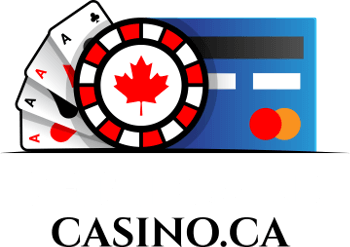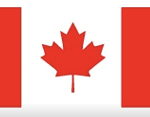History of Indiana Gambling Laws, 1988-Present
Then & Now: Chronological history of gambling laws in Indiana.
 The recent legalization of traditional and fantasy sports betting ushered in a new era of gambling in Indiana. The state’s laws have evolved many times over the past few decades, but none so poignantly as these. Not only did it bring sports gambling into focus for the very first time, it opened a whole new window to lawful internet wagering.
The recent legalization of traditional and fantasy sports betting ushered in a new era of gambling in Indiana. The state’s laws have evolved many times over the past few decades, but none so poignantly as these. Not only did it bring sports gambling into focus for the very first time, it opened a whole new window to lawful internet wagering.
If you’re not from around here, you may not realize just how new gambling is to the Hoosier State. Thirty some-odd years of progressive gaming laws might seem like a long time, but not nearly so long as the 137-year prohibition that preceded it. As you’ll learn in the following text, we’ve gone from blanket restrictions to broad acceptance of nearly every form of risk-worthy gaming on the planet.
So far, the only forms of gambling authorized for online wagering are daily fantasy sports (DFS) and traditional sports betting. At the current rate of progression, however, I would not be at all surprised to see Indiana online gambling laws extended to include poker, casino games, maybe more, in the years to come.
Chronological History of Gambling Laws in Indiana |
||||||||||||||||||||||||||||||||||||||||||||||||||||||||||||
|
On December 11, 1816, Indiana was inducted as the nineteenth State of the Union. The first laws of the land came into effect at that time, but absolutely none pertaining to gambling. Thus, it was legal by default, simply because it was not explicitly illegal. That is, not until… 1851 – Lottery Ban Equates to Prohibition of GamingThe Indiana Constitution is signed into law in 1851, including the proscription of lotteries. The court collectively agrees that the verbiage of the lottery ban is all-inclusive, thereby criminalizing all forms of gambling in Indiana. Indiana’s original Constitution of 1851, Article 15 (Miscellaneous), Section 8, reads:
1988 – Voters Approve Lottery AmendmentVoters approved an amendment to the constitution in 1988 (137 years later) abolishing the lottery ban. It did not legalize all forms of gambling, but it did clear a path for a legal and regulated Indiana lottery. The first “Hoosier Lotto” tickets were sold in 1989. Indiana joined the Multi-State Lottery Association in 1990, helped to co-found the Powerball in 1992, then joined in the selling of Mega Millions and Cash4Life tickets in 2010 and 2016, respectively. 1989 – Legislators Exploit Loophole for Horse RacingThe previous year’s lottery amendment left just enough of a gap in the state’s gambling laws to allow state officials to legalize pari-mutuel betting on horse races in 1989. This led to the construction and grand opening of Hoosier Park in 1994, followed by numerous off-track betting (OTB) parlors in 1995. A second racetrack, Indiana Downs (now Indiana Grand), was opened in 2002. 1989 – 1993 Riverboat Casinos Float Into HarborJust months after lottery and pari-mutuel laws were passed, the same politicians that lobbied for them began pushing for casino gambling. A bill to open a casino resort in Gary, IN was rejected in late 1989, but efforts continued through 1990. In 1991, a riverboat casino bill made it through the House, but was rejected by the Senate. Another attempt was made in 1992, but being an election year, it was far too controversial to get any action. 1993 saw lawmakers mulling over another bill, this time calling for two resort casinos in Gary and French Lick, plus two riverboat casinos; one on the Ohio River, and another on Lake Michigan. That, too, was passed in the House, but died in the Senate. Finally, in July of 1993, a special Assembly was called to deal with mounting budget concerns. Lawmakers who formerly opposed to casinos grudgingly acquiesced to the idea that casino gambling was a viable route to increasing revenue, without increasing taxes. Staunch in their opposition to building casinos within the state’s borders, they chose to approve riverboat casinos only; quite a few more of them than ever previously proposed. They authorized the installment of 11 riverboat casinos – 5 on Lake Michigan, 5 on the Ohio River, and 1 on Patoka Lake. 1994 – Twenty-Four Year Road for Tribal CasinoThe Pokagon Band of Potawatomi Indians were granted federal recognition in 1994. This should have granted them the right to open a tribal casino, on tribal lands, but Indiana’s restrictive laws against gambling on Indiana soil made that difficult. After years of legal battles, the Pokagon Band chose to open a casino across the border on their lands in Michigan, where gambling laws were less strict. Their desire to open a casino in Indiana never faded, though. They eventually renewed their efforts, winning the right to open a Class II gaming facility in South Bend, IN. The Four Winds South Bend officially opened in 2018. 2005 – Indiana Protects Casino Interests with iGaming BanWith the explosion of global online gambling around the turn of the century, Indiana moved to protect its gambling revenue by passing laws to expressly outlaw internet wagering.
2006 – Racinos Bring First Casino Games to Inland IndianaAmendments to the law allow Hoosier Park and Indiana Downs become “racinos”; horse racing tracks with casinos games. In 2006, each is given permission to install up to 2,000 slot machines. This marks the first time casino games have been legal on Indiana’s mainland. Hoosier Park completed its casino floor in 2008. Indiana Downs followed suited in 2009, later rebranding itself as Indiana Grand Casino. With these additions, Indiana – and it’s surrounding waters – became home to 14 casinos (11 riverboat casinos, 1 tribal casino, and 2 racinos). 2015 – Riverboat Casinos Become Permanent Land FixturesIn an effort to remain competitive with the expanding gambling markets of neighboring states, yet another amendment to Indiana’s gambling laws gave riverboat casinos the right to become permanent land fixtures, provided that they remain in their current locations. The first to do so was Tropicana Evansville (formerly Casino Aztar, 1995-2013), earning the title of Indiana’s first land-based commercial casino in 2017. Complete List of Indiana Casinos (Current Nov. 2020)A few of Indiana’s casino have come and gone over the years, or changed ownership and branding, but the number of properties and their authorized locations remains virtually unchanged. The two riverboat casinos in Gary, IN, the Majestic Star and Majestic Star II, are both closing to make room for a single Hard Rock Casino Northern Indiana. The Majestic Star closed in mid-2020, when the Hard rock Casino was originally projected to open. Unexpected delays have postponed the opening until at least January of 2021, which is when the Majestic Star II is now projected to close. That being said… the following is a complete list of all casino gaming properties operating in Indiana, current as of writing (November, 2020).
2016 – DFS Earns Regulation & Skill Gaming StatusIndiana legislators deemed daily fantasy sports (DFS) a game of skill, authorizing the activity for regulation in 2016. This inadvertently led to a lawsuit over publicity rights when a trio of NCAA football stars sued two Indiana DFS operators, DraftKings and FanDuel, for using their images without permission. The defendants eventually won in 2018. The case became important, because it also reflected on a contradiction in the law that led to a partial repeal of Indiana’s 2005 ban on internet gambling. That, in turn, gave the state the option to regulate online sports betting, following the 2019 legalization of Indiana sportsbooks. Which brings us to… 2019 – Regulation of Sports BettingThe US government’s repeal of PASPA in 2018 immediately led to efforts to legalize and regulate sports betting in Indiana. It took many months for a comprehensive measure to receive the approval of Governor Holcomb, who signed the Indiana sports betting law on May 8, 2019. The first internet sports betting operator licenses were awarded to BetRivers Sportsbook, Caesars Online and FanDuel IN on August 8, 2019. On September 1, 2019, the first land-based sportsbooks began accepting wagers in the Hoosier State. Then on October 3, 2019, BetRivers and DraftKings became the first licensed operators to launch Indiana online sportsbooks. This is a topic we discuss in much greater detail in our… |




